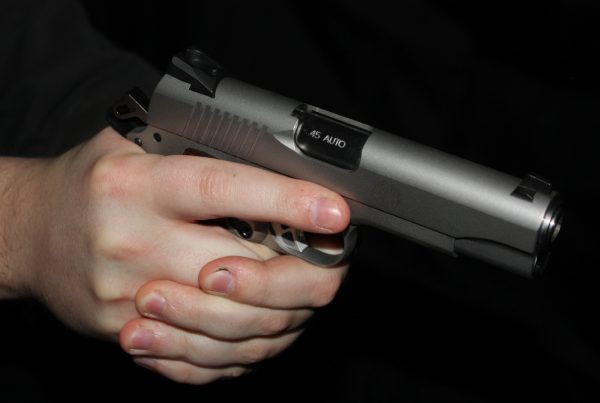Senior Editor
A string of firearm thefts in Chicago’s South Side rail yards underscores what Second Amendment activists call the “faulty logic” of gun control proponents that more gun laws will keep firearms out of the wrong hands.
In a revealing report by NBC News in Chicago, thefts of firearms from railroad cars in 2014, 2015 and 2016 offer a hard look at how many criminals get their hands on guns. And there is no paperwork involved. The thefts have included more than 100 Ruger handguns headed to Spokane, Washington.
Out of 111 guns stolen back in 2015, according to WMAQ News, only 16 have so far been recovered. It’s a safe bet that the rest of those firearms are changing hands without the benefit of background checks, waiting periods, FOID cards or any of the other inconveniences that gun control proponents have placed on law-abiding citizens over the years.
The story revealed that thefts occurred at “the same 63rd Street Rail Yard,” the station noted.
Following the 2015 thefts, the Chicago Tribune reported at the time that an alleged thief and his fence were charged. While prosecuting criminal suspects rather than making honest citizens jump through regulatory hoops gets closer to the problem, it doesn’t include one important factor: Anti-gunners will not acknowledge that criminals ignore with impunity every law they push.
Last year, the Windy City racked up 762 homicides, most of them committed with firearms by people who probably acquired most of them without all of the regulatory red tape.
WMAQ reported that the Associated Press had reviewed hundreds of court records and discovered that one of the recovered 16 guns had been used in a January 2016 shooting. Another gun was found at the home of a drug dealer, along with more than 400 bags of heroin. A third gun was found during a traffic stop.
While gun prohibition lobbying groups continually pound away at passing more laws – the “universal background check” campaign is being largely criticized as a back door registration scheme that won’t prevent crime but will identify and track honest citizens who have guns – they’ve learned to add a caveat. They admit these laws won’t stop all crime.
So far, in states such as Washington, where anti-gunners spent more than $10.2 million in 2014 to pass a background check initiative, there is no evidence the law has stopped any crimes. Indeed, a high-profile shooting last summer that claimed the lives of three teens was committed by a youth who actually passed a background check. So, anti-gunners including state Attorney General Bob Ferguson, blamed the law and the gun. But, attempts to ban so-called “assault weapons” or to just license them and make them more difficult to own were stopped in the State Legislature.
Second Amendment activists contend that the gun prohibition movement – what else should a lobbying effort that seeks to ban entire classes of firearms be called? – stubbornly refuses to admit their schemes would not prevent a single one of the slayings they uses as political props to push their agenda.
With the election of Donald Trump and a Republican takeover of Congress, largely due to gun owner activism, groups such as Michael Bloomberg’s Everytown for Gun Safety and the Seattle-based Alliance for Gun Responsibility are scrambling. They are feverishly trying to push laws at the state level, and through citizen initiative where available.
Trump has played one important card that might help derail their campaign. His nomination of Judge Neil Gorsuch to the U.S. Supreme Court has anti-gunners worried.
Back on Feb. 9, the Alliance sent an email fundraiser that declared Gorsuch a “gun-extremist.”
“Trump’s friends in the Gun Lobby LOVE Gorsuch for his gun-friendly judicial rulings,” the Alliance said. “He’ll even make it easier for criminals to obtain guns — and harder to prosecute them. “The damage Gorsuch could do to our country is unimaginable. And if we don’t stop him, he’ll likely remain on the Supreme Court for DECADES.”
Gun prohibitionists better hang on because it could be a bumpy ride. Trump has a whole deck of cards that includes more than 100 vacancies on the federal courts, where most gun law challenges are now decided.




